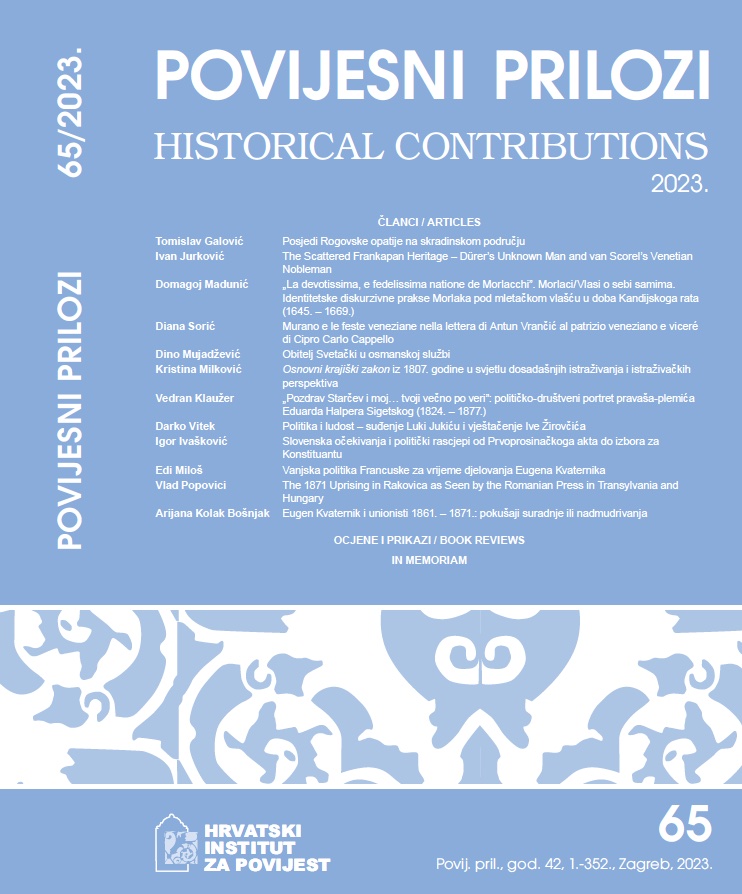Slovenian Expectations and Political Splits from the December 1 Act to the Election for the Constituent Assembly
DOI:
https://doi.org/10.22586/pp.v42i65.24919Keywords:
Slovenes, Kingdom of SCS, Slovenian People's Party, Yugoslav Democratic Party, Yugoslav Socialdemocratic Party, communistsAbstract
The paper investigates the objectives and strategies of Slovenian political groups during the period spanning from the December 1 Act of 1918 to the elections for the Constituent Assembly in November 1920. Despite shared external political goals among the Slovenian parties and their joint ambition to participate in government on the domestic front, this period witnessed numerous internal divisions. Within the Slovenian National Party (Slovenska ljudska stranka – SLS), a rift emerged between critics of Greater Serbian policies and opportunists aiming for a post-election coalition with Serbian radicals (Narodna radikalna stranka). Despite the ambition of preserving the status of the strongest Slovenian political option and using the coalition potential for government participation, which offered a better perspective for achieving foreign policy objectives, the party successfully preserved its organizational integrity. Simultaneously, the Slovenian liberals, who welcomed the Kingdom of SCS enthusiastically, unlike most conservatives, experienced fragmentation into several parties. This was fuelled by the expectation that Slovenian inclusion in the South Slavic state would create more manoeuvring room in Slovenian territory for Yugoslav unitary political forces. Consequently, some liberals sought to capture the marginal segments of the electorate traditionally aligned with the conservatives. The average Slovenian voter, however, showed a reluctance towards unitarianism, and the best electoral result was achieved by the liberal faction emphasizing Slovenian autonomy during the pre-election period. The social democratic pole achieved a relatively good result, even as it experienced internal division. Reformists criticised Slovenian political competitors, while communists adopted a more radical approach towards Serbia. They criticized the SLS only implicitly and even absorbed segments of its pre-war program, penetrating its electorate without major direct conflict.
Downloads
Published
How to Cite
Issue
Section
License
Copyright (c) 2023 Authors and journal

This work is licensed under a Creative Commons Attribution-NonCommercial 4.0 International License.







